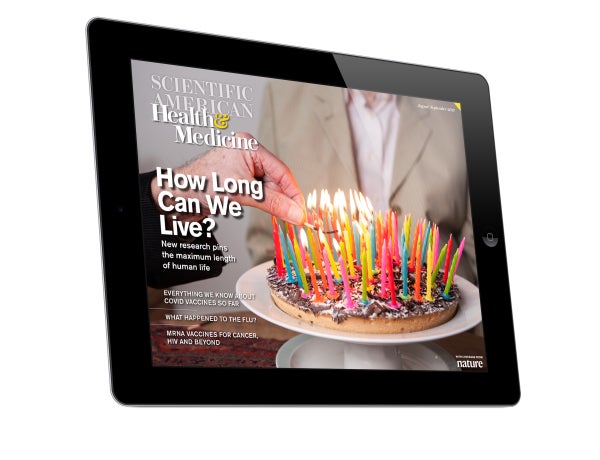For many cultures, including the U.S. and China, aging is a particular anathema. The global market for antiaging products alone is valued at more than $50 billion a year and is expected to balloon to more than $83 billion in less than a decade. The demand to slow aging—through mostly ineffectual pills, serums or creams--is real. But our understanding of how the human body ages is still nascent, one could argue. In fascinating new findings, a team of researchers determined that an ultimate limit to human life exists, mostly because the body’s ability to bounce back from disease or other disruptions and reestablish a so-called equilibrium declines over time. So aging may be less about how quickly the body degrades and more about the body’s overall resilience (see “Humans Could Live up to 150 Years, New Research Suggests”).
For now one of the biggest threats to human life remains the COVID-19 pandemic. With nearly two billion doses administered, Nature reporter Heidi Ledford profiles everything we have learned so far about these new medicines (see “Six Months of COVID Vaccines: What 1.7 Billion Doses Have Taught Scientists”). And mRNA technology may open the door for new treatments against an array of diseases beyond COVID, including cancer (see “After COVID-19 Successes, Researchers Push to Develop mRNA Vaccines for Other Diseases”). Here’s to your long and healthy life.
